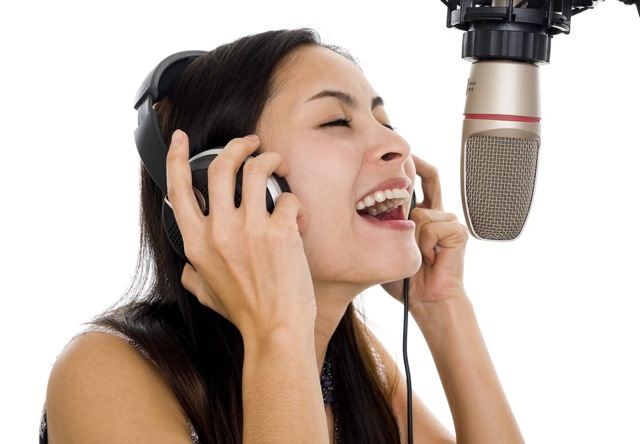|
A couple weeks ago I wrote a blog post about my recent experience of shopping one of my new songs around, “I Will Fly”. In case you missed that post, I talked about how the original version was accepted by about half of the places I sent it to and rejected by the other half due to vocal and production issues. Read the full post here. So, even though my producer, Gary, and I were pretty pleased with our 50% success rate, we decided to do a second version of the track using a different vocalist (I sang on the original version) and make some changes to the production to make the track sound a little more current and fun. The very first song I licensed back in 2002 I performed the vocals on. But over the years, about 75% of the tracks I’ve licensed have featured different vocalists. My vocal range is fairly limited, and I can usually tell right away whether or not my vocals will work for a song. When in doubt, I bring on someone else who can handle the vocal duties better than I can. This has almost always proved to be a good idea, and I’ve gotten a lot more placements than I would have otherwise. By using different vocalists, as opposed to trying to sing everything myself, I’ve expanded my catalog of songs that are licensing appropriate greatly. As an artist, I aim to write songs that are a reflection of who I am as a person and songwriter. But as a professional songwriter licensing my music, my sole aim is to write and produce music with the best chance of getting licensed. Of course I try to write songs I genuinely like and feel good about. But ultimately, I want to write and produce songs that work. I’m not trying to change the world, at least in the context of songs I write for licensing. What I am trying to do, is write really good songs and deliver really solid performances, so that they’ll stand the best chance of being used in tv shows, films, ads and so on. Some of the songs I write, I know right away won’t work for licensing. If I write a song that I fall in love with, but I know it won’t work for licensing, I still finish it. Some of these songs end up being released on my CDs and digital releases, and other times, nothing comes of them at all. They just get stored on my hard drive in my digital vault of music that may or may not ever see the light of day. The point is, I’m not only writing songs for licensing, I’m simply trying to write the best songs I can, and then figure out how to best monetize them and best put them to use. But I recognize the difference in terms of what songs have the best chance licensing wise, and which ones are better to use for other projects, and I pitch them (or not) accordingly. I recently interviewed the CEO of Crucial Music, Tanvi Patel, for my podcast. During our interview, I asked Tanvi what types of songs work best for licensing. Her response was that, “a great song is a great song, whether it’s used in licensing or on the radio”. The one caveat she mentioned is that songs used in the context of licensing, need to work “within the scope of licensing”. By this she meant that lyrically and stylistically they need to be aligned with what works for licensing. In other words, a great song is a great song, but there are a few considerations when it comes to what works best for licensing. See my free course on “How To Write Songs For Licensing”, for more on this topic. So, back to my latest song and using a different vocalist. The bottom line, is that if I’m writing a song with the goal of licensing it, I want to cover all my bases, licensing wise, and make sure it has the strongest chance of being licensed based on what I’ve seen work, over and over, with other songs that have been licensed. I want to make sure the following things are in order:
For my latest track, “I Will Fly”, based on the initial feedback we received, we felt it would be safest to have two different versions, for anyone who didn’t take to my admittedly quirky voice. Some people love my voice, and others don’t appreciate it as much. I’m not attached one way or the other. I just want to do what’s best for the song and what will generate the most deals and ultimately the most placements. Since we changed the production, we’ve added two more deals, for a total of six now in just two weeks. Gary (my producer) and I agreed to give the vocalist a percentage of any back end money we made in exchange for our vocalist singing on the track. The vocalist was happy to do this, to build his resume, get additional exposure and to, most likely, make money on the back end. So, without further ado, here are the before and after versions of my latest track, featuring myself singing on the former and vocalist Travis Nilan, singing on the latter.
"I Will Fly" Original Version [Before]
"I Will Fly" Featuring Travis Nilan [After] What do you think of the track? What do you think of the vocals and production? Let us know in the comments!
28 Comments
Deb
9/21/2016 08:59:55 am
Love both versions!
Reply
9/21/2016 11:26:19 am
Both versions serve the song well, the second being a bit smoother. The production is good, the song and lyrics are good. The guitar solo has a good sound but playing off the beat continually limits the possibility for more variation.
Reply
9/21/2016 09:05:44 am
Aaron, your song is great, your voice is soothing and I can see where the placement should be appropriate for multi categories. I think the intro. Certainly grabs you in to want to hear more. Hey, feel free to visit my website www.terrybullard.net and go to my music....I am pure Country. Let me know what you think! Thanks for the blog.
Reply
Aaron Davison
9/21/2016 09:48:38 am
Hi Doug, I agree! Travis sounds great on this and his voice is silky smooth.
Reply
Hi Doug,
Reply
9/21/2016 10:09:47 am
Sounding nice Aaron - I like the songwriting and production. Definitely agree that Travis's vocal makes it much stronger.
Reply
Aaron Davison
9/21/2016 10:32:49 am
Hi Freejay, everything is negotiable. You can really strike any deal that everyone involved is happy with. I wouldn't list anyone as a co-writer unless they actually are a co-writer. In the past, I've either paid an upfront fee to a vocalist, given them a percentage of backend, or a combination of both these things.
Reply
Hi Aaron and Gary:
Reply
Hi Aaron, I like both. He has a bit of a different tone quality and a bit of vibrato happening at times. It sounds like he may be getting a bit more resonance in his tone. Do you take voice lessons? Because the right teacher could perhaps give you some tips about how to be more resonant. Also, if it was my song, I would likely transpose it up one whole step. I think both singers would benefit. The beginning phase (near the beginning) goes down a scale into the low range. To me it's too low. The voices aren't as strong, so I'd take it up. And, I would likely put in a key change, perhaps after the guitar solo at some point. This might give it more of a kick. I'm not sure if my suggestions would make it more "licenseable" but they may improve the arrangement. Anyway, you guys sound really good. Take care, Jeff
Reply
Kim Goldsworthy
9/21/2016 11:28:24 am
Here is my feedback on the vocal differences.
Reply
Aaron Davison
9/21/2016 01:02:22 pm
Wow Kim, great analysis!
Reply
Nias
10/22/2016 09:12:16 am
I agree with Kim wholeheartedly!! Stacking vocals has its place, especially on a chorus, but the verses, even adlibs should give you a sense of intimacy, it should pulls you into the performer. Double tracking lead vocals takes away from that, at least for me. Good call in varying the singer to get wider placements. I'm in the process of doing the same thing right now by adding a female option on two tracks I'm fronting. So you've inspired me!!! 😊
Michael
9/21/2016 12:55:32 pm
Not my style of music but I do agree with the other half of the publishers. Your vocals just don't sit right and some parts sound too autotuned. Bringing in a new vocalist does the song justice imo.
Reply
Aaron Davison
9/21/2016 01:03:19 pm
Thanks Michael!
Reply
9/21/2016 03:29:26 pm
Thanks for this article. Both versions have strengths. I think that the re-done vocals is really helping the track. Did you consider using your original vocals as harmony for the new vocalist? I am going through very similar issues with my voice and recordings. I am experimenting with various vocalists to find the best match to the song. I'm in California and some of the vocalists are international, like Iceland. It would be nice to find someone who could work more closely, but a great voice is what we are after, so location is not as important.
Reply
Kim Goldsworthy
9/21/2016 04:57:11 pm
In reply to the poster who is looking for hired guns (vocalists for pay).
Reply
Hi Aaron,
Reply
Aaron Davison
9/22/2016 11:02:14 am
Hey Fuzz Box,
Reply
9/22/2016 06:43:45 am
I have to disagree with many here, I think the first vocal is better, or would be with some re-jigging.
Reply
Aaron Davison
9/22/2016 09:47:29 pm
Thanks for your feedback Margaret!
Reply
Aaron Davison
9/22/2016 11:03:12 am
Hi Liz,
Reply
I like the retro vibe and authenticity of the first version. The doubling in this case adds energy and emotion (IMO) and the melody doesn't seem to be pushing the limits of your range. The other version is still good, but it's a bit more 'slick'.
Reply
Dan
9/26/2016 12:55:30 pm
As others here have already intimated, I'm not sure Travis's voice is any "better" than yours so much as the production choices on the two tracks accounting for much of the preference to the second track.
Reply
Dan
9/26/2016 12:57:31 pm
As others here have already intimated, I don't really think Travis has a better voice for the song as much as the production choices on the two tracks account for much of the preference to the second track.
Reply
3/16/2022 07:45:23 am
It's awesome that this article talked about the idea is that I'm not just making music for licensing; I'm just attempting to produce the best songs I can, then figuring out how to monetize and use them as effectively as possible. I'm glad that you explain it thoroughly and now it makes more sense. You did a great job of explaining vocalist production.
Reply
Leave a Reply. |
|
© 2024 By Aaron Davison.net

